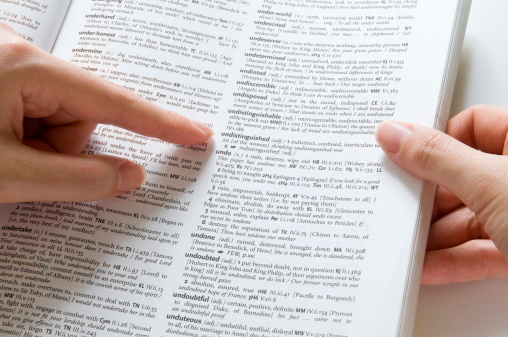Kapanlagi.com - The term domisili is often used in the field of administration. Usually, the term domisili appears in various forms that someone has to fill out when registering for something. Domisili seems to be a part of a person's identity. The meaning of domisili is often equated with the current place of residence.
In addition to forms, domisili also often appears in daily conversations. Discussions about domisili often arise in introduction situations. Someone who asks about domisili will usually answer by mentioning the name of the city where they live. However, it turns out that the meaning of domisili is not only limited to the location of the current residence.
The meaning of domisili is closely related to the rights and obligations of an individual as a citizen administratively. To find out more, you can directly read the following explanation.
1. Meaning of Domicile According to KBBI

(credit: unsplash)
The term domicile is believed to originate from the English word "domicile" which means 'place of residence'. Currently, the word domicile has been absorbed into the Indonesian language. Therefore, the meaning of domicile can now be found in the Great Dictionary of the Indonesian Language (KBBI). According to KBBI, the meaning of the word domicile is the legitimate place of residence of an individual.
In that meaning, the word 'legitimate' is included. The presence of the word 'legitimate' indicates the presence of legal elements in the understanding of domicile. Therefore, it is not surprising that the term domicile often appears in the realm of administration. Because in administration, there are often legal rights and obligations.
2. Meaning of Domicile According to Experts

(credit: unsplash)
To understand the meaning of domicile, it feels like the understanding found in KBBI alone is not enough. There are several experts who express their opinions regarding domicile. Here are some meanings of domicile according to several experts.
1. Prawirohamidjojo and Pohan
Prawirohamidjojo and Pohan argue that domicile is the place where an individual is always present to fulfill their rights and obligations.
2. Sri Soedewi Masjchoen Sofwan
According to Sri Soedewi Masjchoen Sofwan, the meaning of domicile is the place where an individual fulfills their obligations and exercises their rights. Even though, in reality, the individual is not currently in that place.
3. Subekti
Subekti sees domicile as the 'house of death' or 'final domicile'. Meaning, the house where someone dies. It is used to determine inheritance law and jurisdiction to adjudicate claims.
3. Types of Domicile

(credit: unsplash)
So far, the meaning of domicile has often been interpreted narrowly as a place of residence or where someone settles. However, if examined in more detail, it turns out that domicile is divided into several types. It is important to know and understand each type, as each type of domicile has its own meaning. Here are the types of domicile.
1. Bound Domicile
The meaning of bound domicile is a domicile that is determined that someone must adjust to the presence of their family. For example, a wife who must have the same domicile as her husband, or a child who must have the same domicile as their parents.
The laws that serve as the basis for bound domicile include the following.
1) The wife's place of residence is the same as the husband's place of residence (Article 32 of Law No. 1 of 1974).
2) The child's place of residence follows the parents' place of residence (Article 47 of Law No. 1 of 1974).
3) The place of residence of a person under guardianship follows the place of residence of their guardian (Article 50 of Law No. 1 of 1974).
2. Free Domicile
In contrast to bound domicile, free domicile means that someone has the right to freely determine their domicile or place of residence. Domicile is related to civil authority and appointment.
Laws and regulations related to domicile, among others:
1) The forced chosen place of residence is determined by law. (Article 106:2 of the Civil Code)
2) The freely chosen place of residence, for example, a voluntarily chosen place of residence, must be done in writing, meaning it must be done with a deed. If one moves, then for the legal actions they take, they still have their residence in the old place (Article 24:1 of the Civil Code).
4. Rights and Obligations Based on Domicile

(credit: unsplash)
Based on the explanation above, the meaning of domicile seems to be closely related to a person's place of residence and legal rights and obligations. Furthermore, these laws include both public and civil laws. Here are some laws that concern the rights and obligations based on an individual's domicile.
1. Public Law
1) Participating in elections.
2) Election location is determined based on the designated domicile.
3) Obligation to pay property tax according to the domicile.
4) Obligation to pay motor vehicle tax according to the registered owner's domicile.
2. Civil Law
1) If the agreement does not specify the place of payment, the debtor must pay at their place of residence (Article 1393 paragraph 2 of the Civil Code).
2) The debtor must pay promissory notes/cheques to the holder (creditor) at the debtor's place of residence/address (Article 137 of the Civil Code).
3) The debtor has the right to receive credit from the creditor at the creditor's office. This also applies to the obligation to repay credit at the creditor's office.
Those are some explanations about the meaning of domicile according to KBBI and experts. Hopefully, it is useful and can broaden your knowledge!
(kpl/gen/psp)
Disclaimer: This translation from Bahasa Indonesia to English has been generated by Artificial Intelligence.
















